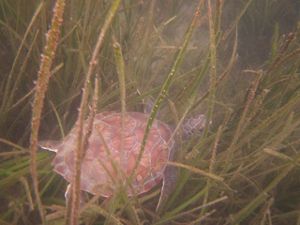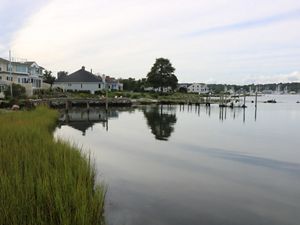Unlike people, fish, birds, shellfish and sea turtles don’t observe state borders or restrict their movements to mapped highways. For this reason, The Nature Conservancy’s Long Island Sound Program also reaches across boundaries. Specifically, TNC's scientists and partners from the three states—New York, Connecticut and Rhode Island— work together to protect and restore key wildlife habitat in Long Island Sound
More than 21 million people live within 50 miles of Long Island Sound’s shores, where coastal development and demand for food, energy and jobs have been increasingly straining natural resources for decades. Still, this area is also home to a surprisingly diverse array of plants, animals and habitats, including four species of sea turtle, fish ranging from skates to anchovies, as well as salt marshes and eelgrass meadows that are among the most biologically productive places on the planet.
Despite its challenges, Long Island Sound retains much of its natural character and is recognized as one of 28 nationally significant estuaries by the National Estuary Program. TNC is committed to advancing science and working with partners to revitalize and protect a healthy, resilient Sound for marine life and the communities who depend on it for their livelihood and well-being.




